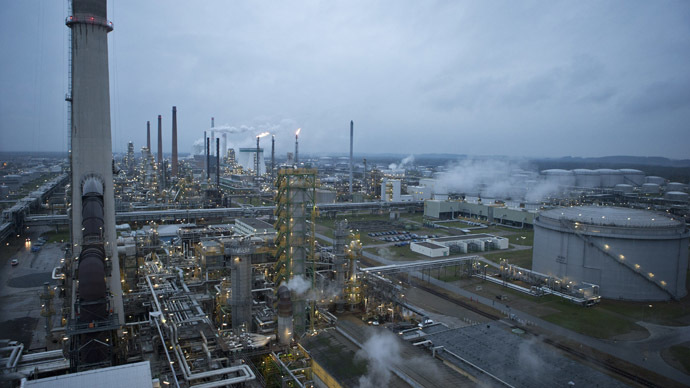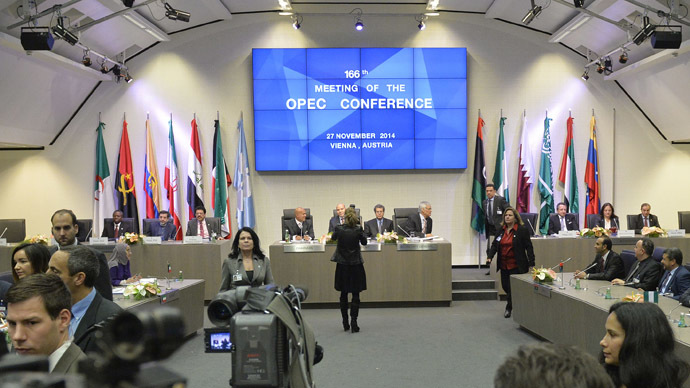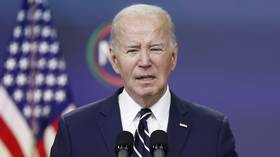‘Big hint at OPEC- Saudi oil minister says prices will stabilize’

The fact the Saudi oil minister thinks oil prices will stabilize themselves shows that Saudi Arabia is not willing to intervene alongside the rest of the OPEC members to cut production, Jasper Lawler, analyst at CMC Markets, told RT.
RT:It is going to be a pretty big OPEC meeting in Vienna. Do you think the countries will agree to cut production?
Jasper Lawler: Yes, it’s a big one just because of the extent of the oil price declines that we have seen preceding it. I think the biggest hint that we’ve had to date was the Saudi oil minister [Ali Al-Naimi] coming out today and saying that he thinks that oil markets will eventually stabilize. So if he if thinks they are going to stabilize by themselves, the natural assumption would be that he doesn’t feel he need to intervene alongside the rest of the OPEC member countries to cut production just in order to hike prices. I think that makes a lot of sense just because he is aware of the market forces: there is now an increase in production in the US from the shale gas boom there. And he is aware OPEC doesn’t have the same weight in the market as it once did. He is willing to let market forces play out with the idea that the cost of the production in the US is a lot higher than in Saudi Arabia so they can afford to hold out a bit longer with the lower oil prices.

RT:There is that theory floating around that the oil price have been driven down intentionally by the conventional oil producers just like Saudi Arabia trying to combat the shale companies in the US, basically price them out of the market. How much truth is that?
JL: It sounds very conspiratorial when you put it in those terms. But I think they do have a large influence on market prices due to their level of production. And they have not cut production; they are keeping production on the current level, supply and demand forces. They must be aware that the levels of production they are engaging in alongside production in the US is going to force market prices down aside from many other sort of geopolitical events. It is essentially competition. They are oil producers, so is the US, they are aware of the competition, they are aware of different cost structures between the two markets and they probably do feel that it would make more sense to them to keep production at current levels, let prices drop a bit, let some of the US producers come out to the market and that might have longer term implications for higher prices. The flip side to that is that if they went ahead and cut production then that may serve to make the oil price higher, encourage more production in the US, and could eventually turn into lower prices. It is a bit of the: “damned if you do, damned if you don’t” kind of situation.
The statements, views and opinions expressed in this column are solely those of the author and do not necessarily represent those of RT.
The statements, views and opinions expressed in this column are solely those of the author and do not necessarily represent those of RT.












